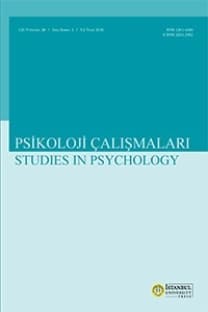Okuma ve Okuyamamanın Nörolojik Hikayesi
Harvard Üniversitesi’nde doktora eğitimini tamamladıktan sonra Tuft Üniversitesi bünyesinde yönettiği Okuma ve Dil Araştırmaları Merkezi’nde dil ve okuma gelişimini aydınlatmaya yönelik çalışmalar yürüten Profesör Maryanne Wolf, okumanın tarihteki en kayda değer icatlardan biri olduğunu söyler. “Okuyan Beynin Bilimi ve Hikayesi: Proust ve Mürekkep Balığı” isimli kitabında Wolf, okumanın öyküsünü anlatırken bizi beyinin kıvrım ve yolakları arasında uzun bir yolculuğa davet etmekte ve okuma ediniminin nörolojik alt yapısına ilgi duyan ve sinir bilim terminolojisine aşina okuyucuların sorularına doyurucu cevaplar sunmaktadır. Yazar okumanın hikayesini anlatmak için beyindeki sinir hücreleri arasında kurulan ileti yollarında bir keşif gezisine çıkmaktadır. Sinir hücrelerinin çalışma ilkesine yönelik çok önemli bilgiler 1950’li yıllarda Hodgkin ve Huxley tarafından mürekkep balıklarının dev aksonları üzerinde yapılan incelemeler sayesinde keşfedilmiştir. Tam da bu nedenle yazar nöronların çalışma mekanizmasının anlaşılması adına önemli bir hizmette bulunan Mürekkep balığına bir vefa borcu olarak kitabın başlığında yer vermiştir. Kitabın başlığında yer alan diğer bir kahraman ise okuma eylemini, adeta bir çeşit entellektüel “mabet” olarak değerlendiren Fransız Romancı Proust’tur. Wolf okumanın hikayesine dolaylı yollardan da olsa ışık tutan Mürekkep balığını ve okumanın kıymetini derinlemesine farketmişProust’ubuhikayeninsembolikkahramanlarıolarakelealmıştır. Elinizdekibumetin,Wolf’un “Okuyan Beynin Bilimi ve Hikayesi: Proust ve Mürekkep Balığı” kitabında ele aldığı okumanın bilimsel ve nörolojik hikayesinin tümünü kapsama kaygısı taşımayan ancak bu öyküdeki kritik mesajlara ışık tutmayı amaçlayan bir değerlendirme yazısıdır.
Anahtar Kelimeler:
okuma, okuma güçlüğü, okumanın nörolojik alt yapısı
The Neurological Story of Reading and Reading Difficulties
Professor Maryanne Wolf, who completed her doctoral studies at Harvard University, administers Tuft University’s Center for Reading and Language Studies, where she conducts studies to explain the development of language and reading. She says that reading is one of the most remarkable inventions in history. In her book "Proust and The Squid: The Story and Science of the Reading Brain: " Wolf tells the story of reading and invites us to a long journey along the folds and pathways of the brain and presents satisfying answers to the questions of readers who are familiar with the neuroscience terminology and interested in the neurological background of reading acquisition. The author goes on an exploration trip through the neural pathways established among nerve cells in order to tell the story of reading. Hodgkin and Huxley discovered very important information on the working principle of nerve cells in the 1950s by means of their researches on the giant axons of the squid. For this very reason, the writer has included “the squid” in the title of her book, to thank to the squid due to its important contributions for understanding the working mechanism of neurons. Another hero in the title of the book is the French novelist Proust, who regards reading as a sort of intellectual "shrine". Wolf treated Proust who was deeply aware of the value of reading and the Squid that illuminated the story of the reading, albeit indirectly, as the symbolic heroes of this story. This text in your hand does not intent to present a complete coverage of the Wolf’s book ("Proust and The Squid: The Story and Science of the Reading Brain") on the scientific and neurological story of reading. Rather, this writing is a review essay that aims to shed light on the important messages in the book.
Keywords:
Reading, reading difficulty, neurological basis of reading,
___
- Bolger, D., Perfetti, C., & Schneider, W. (2005). Cross-cultural effect on the brain revisited: Universal structures plus writing system variation. Human Brain Mapping, 25, 92-104.
- Miller, J. F., Heilmann, J., Nockerts, A., Iglesias, A., Fabiano, L., & Francis, D. (2006). Oral language and reading in bilingual children. Learning Disabilities Research & Practice, 21(1), 30–43.
- Rowe, M.L. (2012). A longitudinal investigation of the role of quantity and quality of child-directed speech in vocabulary development. Child Development, 83, 1762-1774.
- Shaywitz, S. E., Shaywitz, B. A., Pugh, K.R., Fulbright, R.K., Constable, R.T., Mencl, W.E., Shankweiler, D.P., Liberman, A.M., Skudlarski, P., Fletcher, J.M., et al. (1998). Functional disruption in the organization of the brain for reading in dyslexia. Proc. Natl. Acad. Sci. USA 95, 2636–2641.
- ISSN: 1304-4680
- Başlangıç: 1956
- Yayıncı: İstanbul Üniversitesi
